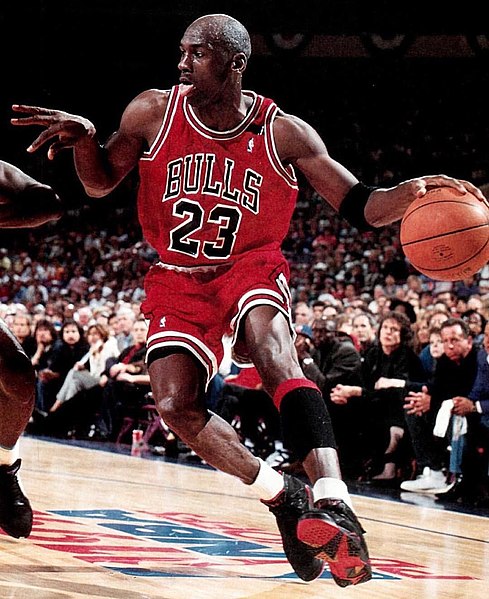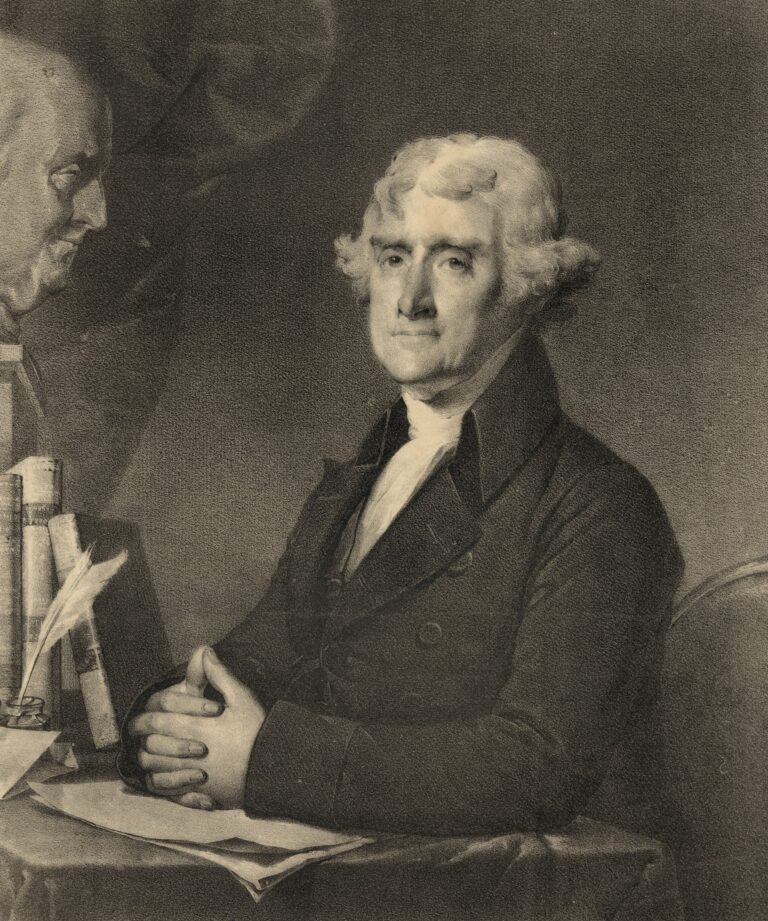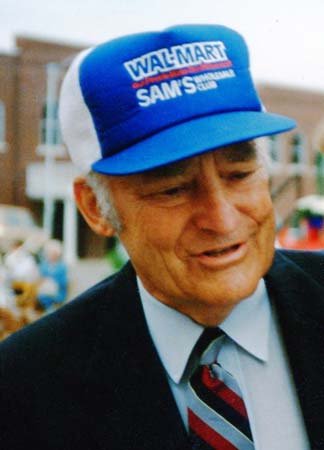Soaring to New Heights: Leadership Lessons and Stories from Michael Jordan

Discovering the Secrets of Jordan’s Leadership Mastery
Michael Jordan, known by many as the greatest basketball player of all time, has transcended the world of sports to become a global icon. As his on-court accomplishments dazzled fans, it was his extraordinary leadership that set him apart and played a vital role in his meteoric rise to fame. Over the years, Jordan’s leadership abilities have been studied, dissected, and admired by experts and enthusiasts alike. By delving into his journey, we can uncover the essential qualities and principles that contributed to his success and learn how to apply them in our own lives.
The purpose of this article is to explore the leadership lessons and stories that emerged throughout Michael Jordan’s career, providing a comprehensive analysis of the characteristics that shaped him as a leader both on and off the court. Through a chronological examination of his life, from his early beginnings to his time in the NBA and beyond, we will identify the key leadership qualities he displayed and understand the experiences that honed these skills. In addition, we will discuss real-life stories from Jordan’s career that demonstrate his leadership in action and reveal the lasting impact of his approach.
In today’s rapidly evolving world, effective leadership is more important than ever. As we face unprecedented challenges and opportunities, strong leaders are needed to inspire, motivate, and guide us towards a brighter future. By studying the example set by Michael Jordan, we can not only learn valuable lessons about the art of leadership, but also gain insights into the personal qualities and attributes that are essential for success in any field.
This article will be divided into several sections, each focusing on a different aspect of Michael Jordan’s leadership journey. We will begin with a brief overview of his early life and basketball beginnings before delving into his illustrious NBA career, highlighting the triumphs and tribulations he faced along the way. Next, we will outline the specific leadership qualities that Jordan demonstrated throughout his career, as well as the key lessons we can learn from his experiences. Finally, we will share notable stories that exemplify his leadership in action and draw conclusions about the lasting legacy of his approach.
As we embark on this exploration of Michael Jordan’s leadership, it is our hope that readers will come away with a deeper understanding of the qualities and principles that contributed to his success, as well as the inspiration to apply these lessons in their own lives. Whether you are a seasoned leader or just beginning your journey, there is much to learn from the legendary career of Michael Jordan.
Early life and basketball beginnings
Michael Jordan’s childhood and family background
Born on February 17, 1963, in Brooklyn, New York, Michael Jeffrey Jordan was the fourth of five children in his family. When he was still a toddler, the Jordans moved to Wilmington, North Carolina, where he spent most of his formative years. His parents, James and Deloris Jordan, instilled in him the importance of hard work, discipline, and a strong family bond from an early age. Michael’s competitive spirit can be traced back to his childhood, when he frequently engaged in sibling rivalries, especially with his older brother, Larry. These early experiences helped forge the relentless drive and determination that would become hallmarks of Jordan’s leadership approach.
High school basketball experience and initial setbacks
Michael Jordan’s basketball journey began at Emsley A. Laney High School in Wilmington, where he displayed a natural talent for the sport. However, during his sophomore year, he experienced a significant setback when he was cut from the varsity team due to his relatively short stature at the time. This rejection served as a turning point in Jordan’s life, igniting a fierce determination to prove his worth and never experience that feeling of failure again. He used this disappointment as fuel to push himself harder, honing his skills and eventually making the varsity team the following year. Jordan’s ability to overcome adversity at such a young age laid the groundwork for his future success and resilience in the face of challenges.
College career at the University of North Carolina
Following a successful high school career, Michael Jordan accepted a basketball scholarship to the University of North Carolina (UNC) under the guidance of legendary coach Dean Smith. His time at UNC not only helped refine his skills but also introduced him to the importance of teamwork, selflessness, and discipline on the court. These lessons would prove invaluable in shaping his future leadership style.
As a freshman, Jordan made an immediate impact, hitting the game-winning shot in the 1982 NCAA Championship game against Georgetown. Throughout his three seasons at UNC, he continued to develop as a player and leader, earning accolades such as the Naismith College Player of the Year and the John R. Wooden Award. In 1984, Jordan decided to forgo his senior year and enter the NBA draft, marking the beginning of his illustrious professional career.
Michael Jordan’s early life and basketball beginnings offer valuable insights into the foundations of his leadership. From his supportive family environment to the setbacks and triumphs he faced in high school and college, these formative experiences played a crucial role in shaping the player and leader he would become. His relentless drive, determination, and resilience, coupled with the lessons learned from influential coaches like Dean Smith, laid the groundwork for Jordan’s ascent to the pinnacle of the basketball world and his emergence as a transcendent leader both on and off the court.
NBA career: Triumphs and tribulations
Drafted by the Chicago Bulls in 1984
In the 1984 NBA Draft, the Chicago Bulls selected Michael Jordan with the third overall pick, behind Hakeem Olajuwon and Sam Bowie. Little did they know at the time, but this decision would alter the course of not just the franchise, but the entire NBA. Jordan immediately made his presence felt, winning the Rookie of the Year award and captivating fans with his electrifying athleticism and competitive fire. Despite his individual success, the Bulls struggled to make deep playoff runs in the early years of his career, which would ultimately serve as valuable learning experiences for Jordan.
Overcoming early challenges and the “Bad Boys” Pistons
During the late 1980s, the Bulls faced formidable opponents in the Eastern Conference, most notably the “Bad Boys” Detroit Pistons, led by Isiah Thomas. The Pistons’ physical and aggressive style of play presented a significant challenge for Jordan and the Bulls, who were eliminated by Detroit in the playoffs for three consecutive seasons (1988-1990). Instead of succumbing to frustration, Jordan used these defeats as motivation to improve both his individual game and his ability to elevate his teammates. This tenacity and unwavering commitment to growth would become key aspects of his leadership style.
The first three-peat (1991-1993)
In 1991, the Bulls finally overcame the Pistons in the playoffs and went on to win their first NBA championship, defeating the Los Angeles Lakers led by Magic Johnson. This victory marked the beginning of an incredible three-year run, during which Jordan and the Bulls captured three consecutive titles (1991-1993). During this period, Jordan demonstrated an uncanny ability to perform under pressure, consistently delivering clutch performances when his team needed him most. This ability to rise to the occasion, combined with his relentless pursuit of success, inspired his teammates and solidified his reputation as a leader both on and off the court.
Temporary retirement and pursuit of baseball
In a shocking move, Michael Jordan announced his retirement from basketball in 1993, following the Bulls’ third consecutive championship. Citing a loss of passion for the game and the desire to pursue a childhood dream, Jordan embarked on a brief professional baseball career, signing with the Chicago White Sox organization. Although his baseball career was short-lived, this period of his life showcased his adaptability, humility, and willingness to take risks – all essential components of effective leadership.
Return to basketball and the second three-peat (1996-1998)
In 1995, Michael Jordan returned to the NBA, rejoining the Chicago Bulls and quickly reestablishing himself as the league’s premier player. With the help of coach Phil Jackson and teammates such as Scottie Pippen and Dennis Rodman, the Bulls embarked on another dominant run, capturing three more championships in a row from 1996 to 1998. This second three-peat cemented Jordan’s status as an all-time great and further highlighted his ability to bring out the best in his teammates and adapt his game to the evolving needs of the team.
Final NBA season with the Washington Wizards
After a second retirement in 1999, Jordan returned to the NBA once more in 2001 as a player for the Washington Wizards. Although his final two seasons in the league did not result in championships, they demonstrated his unwavering passion for the game and his continued commitment to mentoring younger players. Jordan’s tenure with the Wizards provided valuable insights into the evolution of his leadership style, as he transitioned from a dominant on-court force to a mentor and guiding influence for a new generation of players.
Throughout his NBA career, Michael Jordan faced numerous triumphs and tribulations, each presenting unique opportunities for growth and development as a leader. From overcoming the “Bad Boys” Pistons to experiencing the highs of championship glory, these moments helped forge the qualities that defined Jordan’s leadership style. His ability to adapt to changing circumstances, inspire his teammates, and maintain an unwavering commitment to excellence became hallmarks of his approach, both on and off the court.
Moreover, his temporary retirement and pursuit of baseball showcased his willingness to take risks, step outside his comfort zone, and demonstrate humility in the face of new challenges. These experiences further enriched his leadership abilities and provided invaluable lessons that transcended the realm of sports.
As we reflect on Michael Jordan’s NBA career, it is clear that the triumphs and tribulations he faced played an integral role in shaping the leader he would become. His relentless drive, resilience, and adaptability, coupled with his ability to inspire and elevate those around him, serve as a powerful testament to the importance of embracing challenges and learning from our experiences. Whether on the basketball court or in the boardroom, the leadership lessons gleaned from Jordan’s journey can provide valuable insights for individuals from all walks of life.
Leadership qualities demonstrated by Michael Jordan
Relentless work ethic and commitment to excellence
One of the defining characteristics of Michael Jordan’s leadership was his relentless work ethic and unwavering commitment to excellence. He consistently pushed himself to improve, spending countless hours in the gym, studying game film, and refining his skills. This dedication extended to all aspects of his life, including his off-court pursuits and business ventures. Jordan’s commitment to excellence set the tone for his teammates, inspiring them to pursue their personal best and strive for continuous improvement.
Ability to inspire and motivate teammates
As a leader, Michael Jordan possessed a remarkable ability to inspire and motivate his teammates. He led by example, demonstrating a relentless pursuit of success and a willingness to do whatever it took to win. This approach, combined with his extraordinary on-court talent, made him a natural leader who commanded respect and admiration from his peers. Furthermore, Jordan’s fierce competitive spirit was contagious, fostering a culture of hard work, accountability, and unity within his teams.
Adaptability and resilience in the face of adversity
Throughout his career, Michael Jordan encountered numerous obstacles and setbacks, from being cut from his high school varsity team to enduring multiple playoff defeats. However, instead of allowing these challenges to define him, Jordan demonstrated remarkable adaptability and resilience, using each experience as an opportunity to learn and grow. His ability to bounce back from adversity, adjust his game, and evolve as a player and leader was instrumental in his success and serves as a powerful example for leaders in all fields.
Emotional intelligence and empathy
While Michael Jordan was known for his intense competitiveness and demanding nature, he also exhibited a high degree of emotional intelligence and empathy as a leader. He understood the importance of building strong relationships with his teammates and coaches, acknowledging their individual strengths and weaknesses, and offering support when needed. This emotional awareness allowed Jordan to connect with his teammates on a deeper level, fostering trust and loyalty within the team.
Strategic thinking and decision-making
As a player, Michael Jordan was renowned for his ability to read the game, anticipate opponents’ moves, and make split-second decisions under pressure. This strategic thinking extended to his leadership style, as he consistently analyzed and adapted his approach to maximize the potential of his team. Jordan’s keen understanding of the game and his ability to make informed decisions in high-pressure situations were key factors in his team’s success and his growth as a leader.
The value of mentorship and coaching
Throughout his career, Michael Jordan benefited from the guidance of influential coaches and mentors, such as Dean Smith and Phil Jackson. These relationships played a crucial role in shaping his development as a player and leader, teaching him valuable lessons about teamwork, discipline, and selflessness. As a result, Jordan understood the importance of mentorship and coaching in personal growth and took on the responsibility of guiding and mentoring younger players later in his career.
In summary, Michael Jordan’s leadership qualities were a product of his relentless work ethic, ability to inspire and motivate teammates, adaptability, emotional intelligence, strategic thinking, and appreciation for the value of mentorship. These qualities not only contributed to his success on the basketball court but also serve as powerful examples for leaders in all walks of life. By examining and emulating these characteristics, individuals can enhance their own leadership abilities and inspire those around them to achieve greatness.
Michael Jordan’s leadership in action: Notable stories and moments
“The Flu Game” – Overcoming adversity and leading by example
One of the most iconic moments of Michael Jordan’s career occurred during Game 5 of the 1997 NBA Finals against the Utah Jazz. Jordan, suffering from flu-like symptoms, battled through severe physical discomfort and fatigue to deliver an incredible performance, scoring 38 points and leading the Bulls to a crucial victory. This moment, now known as “The Flu Game,” showcased Jordan’s resilience, determination, and willingness to lead by example, even under the most challenging circumstances. His ability to overcome adversity and perform at the highest level inspired his teammates and demonstrated the power of leading from the front.
Helping Steve Kerr shine – Empowering teammates to succeed
During Game 6 of the 1997 NBA Finals, Michael Jordan displayed another critical aspect of his leadership: the ability to empower his teammates and trust them in high-pressure situations. With the game on the line and the defense focused on stopping Jordan, he made a crucial pass to teammate Steve Kerr, who hit the game-winning shot. This moment highlighted Jordan’s willingness to put his trust in his teammates and his understanding of the importance of collective success. By empowering those around him, Jordan was able to foster an environment in which everyone could contribute and excel.
Mentoring and guiding a new generation – The Washington Wizards years
During his final NBA seasons with the Washington Wizards, Michael Jordan took on a new role as a mentor and guiding influence for a younger generation of players. Although his physical skills were no longer at their peak, Jordan’s wealth of experience, knowledge, and leadership qualities enabled him to make a significant impact on the development of his teammates. By sharing his insights, wisdom, and passion for the game, Jordan played a vital role in shaping the careers of several young players, including future All-Star Richard Hamilton. This phase of his career underscored the importance of mentorship and the lasting impact of effective leadership.
Building a successful off-court empire – Leadership beyond basketball
Michael Jordan’s leadership extends beyond the basketball court, as evidenced by his successful off-court ventures, including the Jordan Brand, ownership stake in the Charlotte Hornets, and various philanthropic endeavors. His ability to apply the principles and qualities that made him a successful athlete and leader to these ventures has resulted in a lasting impact on the worlds of business, sports, and philanthropy. Jordan’s off-court success serves as a powerful example of the transferability of leadership skills and the importance of embracing new challenges with the same passion and commitment that fueled his basketball career.
The stories and moments highlighted in this section illustrate Michael Jordan’s leadership qualities in action and demonstrate the lasting impact of his approach. From overcoming adversity and leading by example to empowering teammates and mentoring a new generation, Jordan’s leadership transcended the realm of sports and left a lasting legacy. By examining these moments and understanding the principles and qualities that guided his actions, we can gain invaluable insights into the art of leadership and apply these lessons in our own lives.
Key leadership lessons from Michael Jordan’s career
The importance of setting and pursuing ambitious goals
Throughout his career, Michael Jordan demonstrated a relentless pursuit of excellence, setting ambitious goals for himself and his team. By pushing the boundaries of what was deemed possible, Jordan inspired those around him to dream big and reach for greatness. This lesson underscores the importance of setting high standards and striving to achieve them, as doing so not only drives individual success but also fosters a culture of excellence within a team or organization.
Embracing failure as a learning opportunity
Michael Jordan experienced numerous setbacks and failures, both on and off the court. Rather than allowing these experiences to define him, he embraced them as opportunities to learn, grow, and become stronger. This mindset enabled Jordan to bounce back from adversity and continually evolve as a player and leader. Embracing failure as a learning opportunity is a crucial lesson for leaders in all walks of life, as it encourages resilience, adaptability, and personal growth.
Leading by example and holding oneself accountable
One of Michael Jordan’s most defining leadership qualities was his ability to lead by example. He consistently held himself to the highest standards, working tirelessly to improve his game and demonstrating an unwavering commitment to success. This approach inspired his teammates to follow suit, fostering a culture of hard work, accountability, and excellence. By holding oneself accountable and leading by example, leaders can set the tone for their team and create an environment where everyone is motivated to give their best.
Cultivating a growth mindset and continuous self-improvement
Michael Jordan’s success can be largely attributed to his growth mindset and dedication to continuous self-improvement. He viewed every challenge as an opportunity to learn and develop, consistently pushing himself to become a better player and leader. This approach enabled him to remain at the top of his game throughout his career and adapt to the evolving needs of his team. Cultivating a growth mindset and embracing continuous self-improvement are essential leadership lessons, as they encourage personal development and foster an environment where everyone is committed to growth.
Building strong relationships and fostering team cohesion
Michael Jordan understood the importance of building strong relationships with his teammates and coaches, recognizing that collective success hinged on trust, communication, and collaboration. He invested time and effort in getting to know his teammates, acknowledging their strengths and weaknesses, and offering support when needed. This emotional intelligence and empathy allowed Jordan to foster team cohesion and create a unified, high-performing unit. Building strong relationships and fostering team cohesion are vital leadership lessons, as they promote trust, loyalty, and a shared commitment to success.
Balancing confidence with humility
While Michael Jordan was known for his supreme confidence and competitive nature, he also demonstrated a sense of humility, particularly when it came to acknowledging the role of his teammates, coaches, and mentors in his success. This balance between confidence and humility allowed him to command respect while remaining grounded and open to learning from others. Balancing confidence with humility is an essential leadership lesson, as it enables leaders to inspire trust, maintain perspective, and continually evolve in their roles.
The key leadership lessons gleaned from Michael Jordan’s career – setting ambitious goals, embracing failure as a learning opportunity, leading by example, cultivating a growth mindset, building strong relationships, and balancing confidence with humility – serve as powerful examples for leaders in all walks of life. By internalizing and applying these lessons, individuals can enhance their own leadership abilities and inspire those around them to achieve greatness.
Unlocking Your Leadership Potential with MJ’s Legacy
Michael Jordan’s storied career and enduring legacy provide a wealth of insights into the art of effective leadership. As we have explored throughout this article, the qualities that defined his leadership style, the pivotal moments and stories that shaped his development, and the key lessons gleaned from his experiences offer invaluable guidance for individuals seeking to enhance their own leadership abilities.
Jordan’s relentless work ethic, commitment to excellence, adaptability, emotional intelligence, and strategic thinking set the foundation for his success both on and off the basketball court. His ability to lead by example, inspire and motivate his teammates, and cultivate strong relationships fostered a culture of high performance and unity within his teams. Moreover, his willingness to embrace failure as a learning opportunity, pursue continuous self-improvement, and balance confidence with humility allowed him to evolve as a player and leader over time.
The leadership lessons from Michael Jordan’s career transcend the realm of sports and are applicable to individuals from all walks of life. By setting ambitious goals, embracing adversity, leading by example, fostering a growth mindset, building strong relationships, and maintaining a balance between confidence and humility, leaders can create an environment where everyone is empowered to reach their full potential.
In embracing the leadership legacy of Michael Jordan, we not only pay homage to one of the greatest athletes and leaders of our time but also equip ourselves with the tools and insights necessary to elevate our own leadership abilities. By internalizing and applying the lessons gleaned from Jordan’s journey, we can inspire those around us to strive for greatness, overcome challenges, and achieve success in our personal and professional lives.






